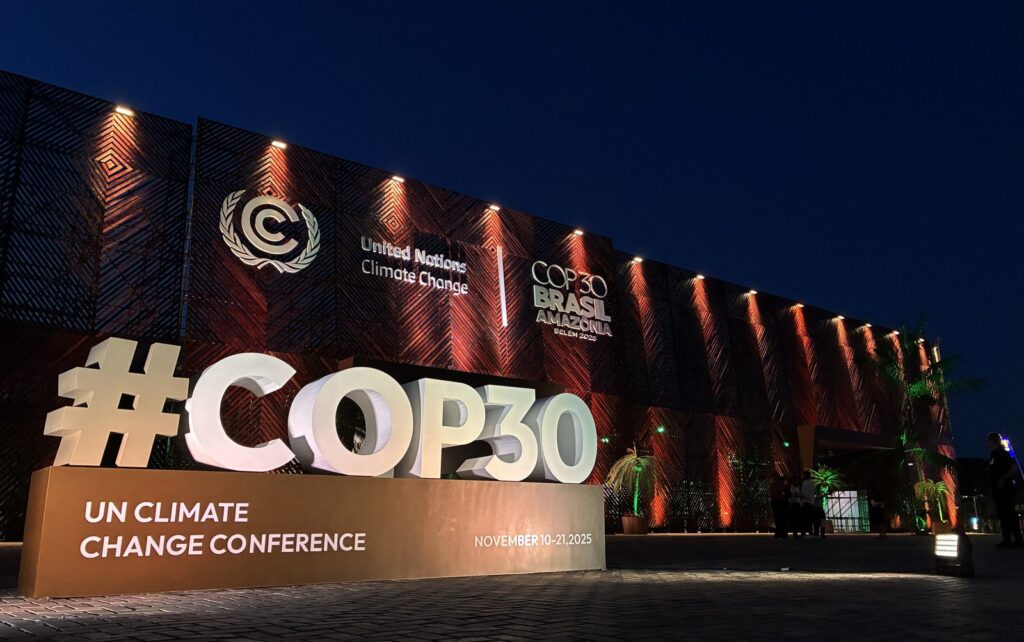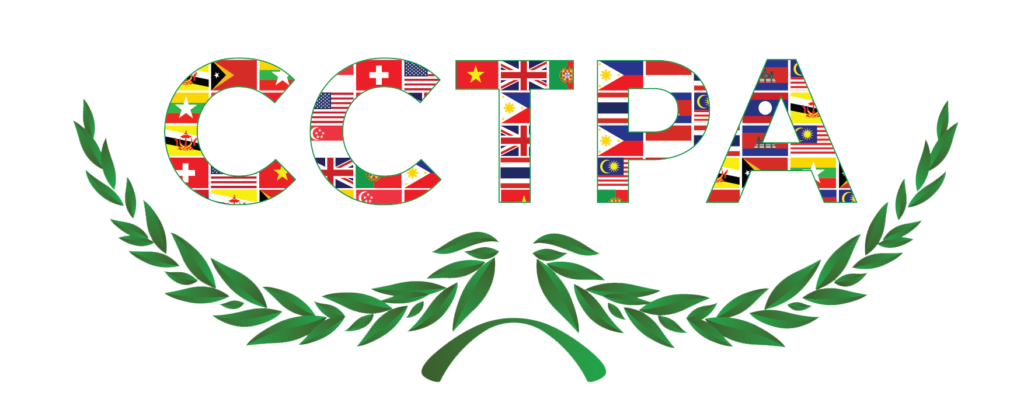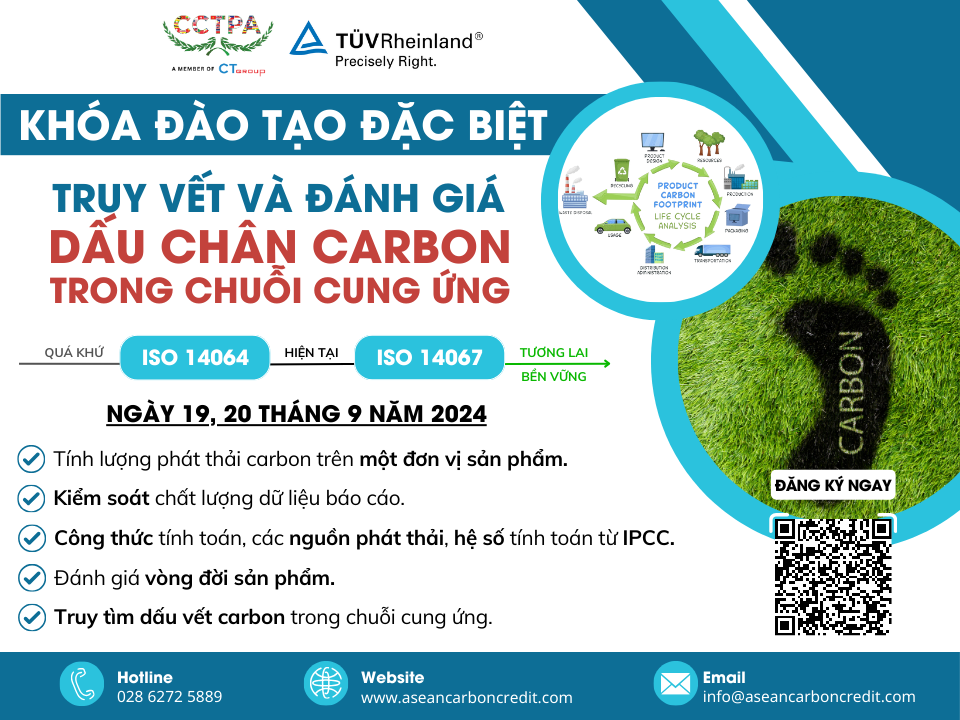COP30 is taking place from November 10–21, 2025, in Belém, Brazil, drawing considerable attention as recent climate reports warn that the global average temperature is approaching 1.5°C above pre-industrial levels – the threshold set by the Paris Agreement to reduce the risks of extreme disasters, economic losses, and ecosystem degradation (according to UNFCCC, IPCC). In Vietnam, the impacts of global warming are evident through record-breaking heat exceeding 44°C, extreme flooding in the central regions, and severe saltwater intrusion in the Mekong Delta, highlighting the urgent need for climate action.
COP30 serves not only as a forum for discussion but also as a moment for countries to demonstrate stronger commitments, promote international cooperation, mobilize climate finance, and implement tangible emission reduction solutions.
Why is COP30 particularly notable this year?
2025 is a critical milestone following the Global Stocktake report, which indicated that current national efforts remain insufficient to put the world on a Net Zero trajectory. COP30 carries the expectation of driving a new phase of climate cooperation, especially as many countries finalize carbon market policies, transition energy systems, and implement projects that deliver both economic growth and environmental benefits.
For Vietnam, COP30 is not only an opportunity to update climate commitments but also to strengthen international cooperation, seek resources for green transition, and promote sustainable development models.
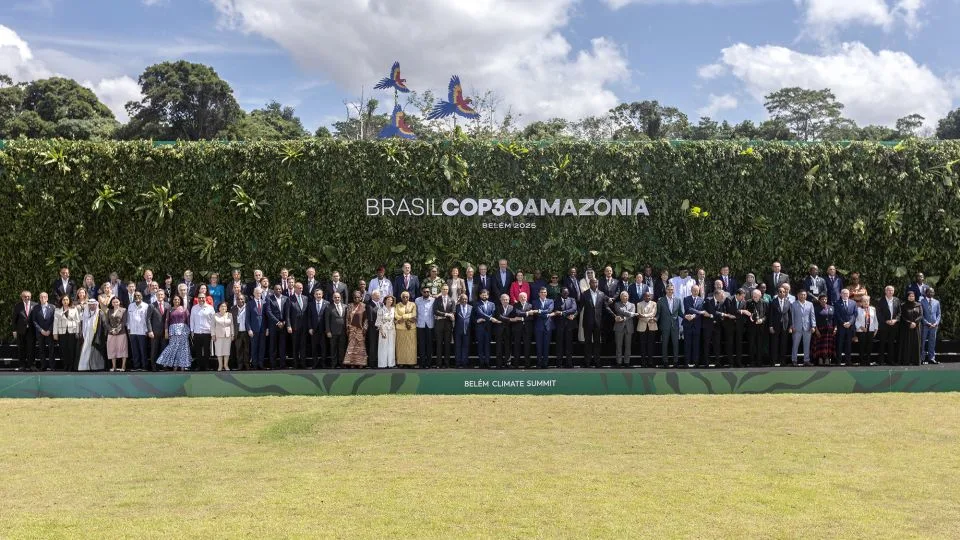
Vietnam’s key activities at COP30
At this year’s event, Vietnam is participating in several notable initiatives, including international collaborations on industrial emission reductions and public-private partnerships (PPPs), alongside various panels and bilateral meetings.
1. Vietnam strengthens cooperation with UNIDO on industrial emission reduction
According to Agriculture & Environment News, Vietnam and the United Nations Industrial Development Organization (UNIDO) held a bilateral meeting at COP30 to promote emission reduction programs in industry. Both parties discussed projects using low-carbon technologies, cleaner production models, and energy transition support for enterprises.
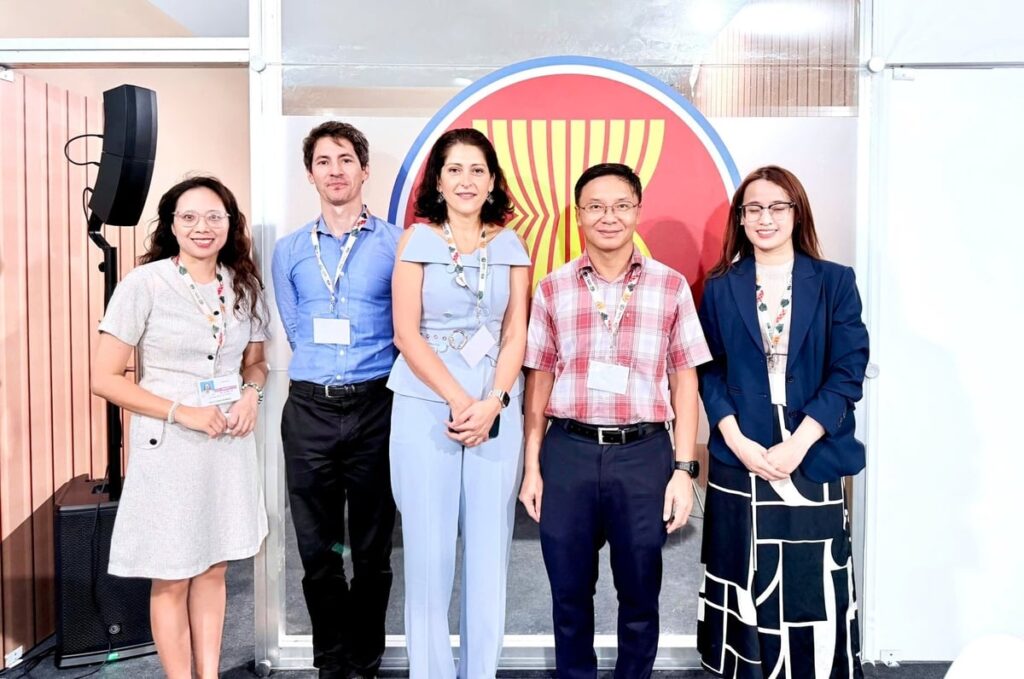
This initiative helps Vietnam access advanced technology, international resources, and long-term cooperation with UN organizations, particularly in heavy industry, which contributes a significant share of national emissions.
2. Vietnam promotes public-private cooperation in climate adaptation and mitigation
According to WWF Vietnam, at COP30, Vietnam emphasized the importance of expanding PPPs to enhance climate resilience, protect nature, and mobilize resources beyond the state budget. Vietnamese representatives have been engaging with various international organizations to advance green finance models, nature-based solutions, and programs supporting provinces in adapting to extreme climate events.
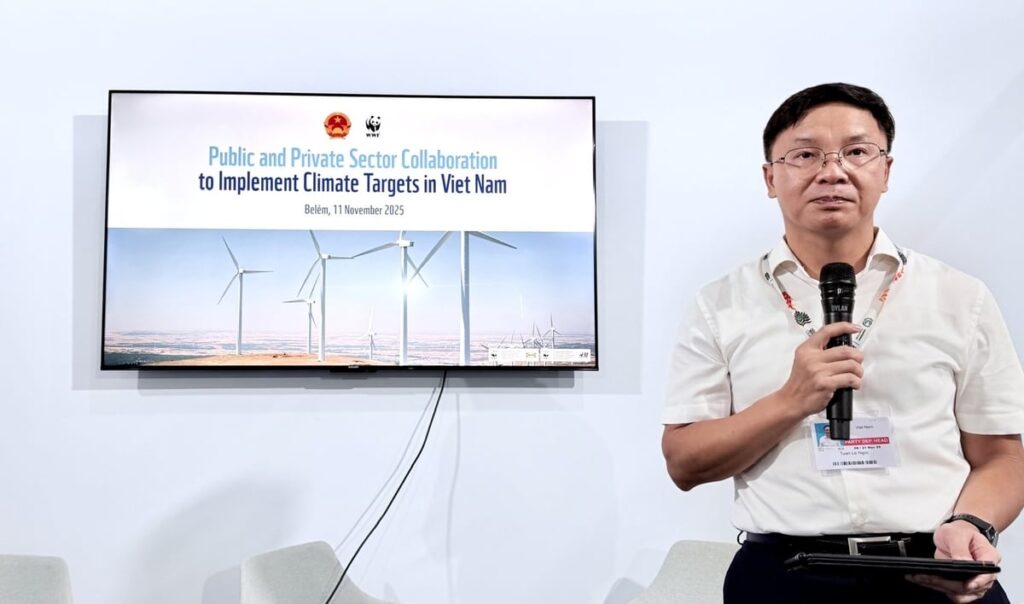

This active and comprehensive participation demonstrates Vietnam’s determination to combine national policies and social resources to achieve emission reduction and green transition goals.
Significance of these activities for Vietnam’s Net Zero journey
These initiatives carry several important implications:
- Enhancing international standing: Vietnam continues to assert its role as a proactive nation in climate cooperation and sustainable development.
- Mobilizing resources: Meetings with UNIDO, WWF, and other international organizations open opportunities for accessing finance, technology, and expertise necessary for emission reduction.
- Accelerating green transition in enterprises: Cooperation in industry and green finance encourages Vietnamese enterprises to engage more deeply in emission reduction, preparing for domestic and international carbon markets.
- Contributing to Net Zero 2050: These activities play a practical role in implementing emission reduction projects and strengthening climate resilience, supporting sustainable development in key sectors toward achieving Net Zero.
Promoting carbon credit projects and markets in Vietnam
In the context of increasingly urgent carbon markets and emission reduction requirements, Vietnam’s activities at COP30 reflect the trend toward standardized emission reduction and international collaboration. These align with the pillars pursued by CCTPA, including:
- Carbon credit project investment and development: CCTPA actively implements and invests in emission reduction projects with carbon credit potential to promote sustainable development.
- Catalyst platform: Supports greenhouse gas inventory and carbon credit development, creating a reliable database for the market.
- Carbon credit exchange: CCTPA develops trading infrastructure domestically and across ASEAN, enabling enterprises to participate efficiently in the carbon market.
Through these initiatives, CCTPA can play a key role in helping Vietnamese enterprises meet global standards while contributing to national Net Zero goals.
Conclusion
COP30 represents a crucial moment for countries, including Vietnam, to demonstrate commitment to climate action through concrete collaborations and strategic steps. Bilateral, multilateral, and innovative initiatives promoted at COP30 not only provide direct benefits to green transition efforts but also lay a solid foundation for long-term emission reduction programs.
With its orientation and role, CCTPA can accompany Vietnamese enterprises and localities in leveraging opportunities from COP30 and the carbon market to advance sustainable development in the coming period.
CARBON CREDIT TRADING PLATFORM ASEAN (CCTPA)
Address: Léman – 20 Truong Dinh, Xuan Hoa Ward, Ho Chi Minh City
Hotline: (+84) 28 6272 5889
Email: info@aseancarboncredit.com




